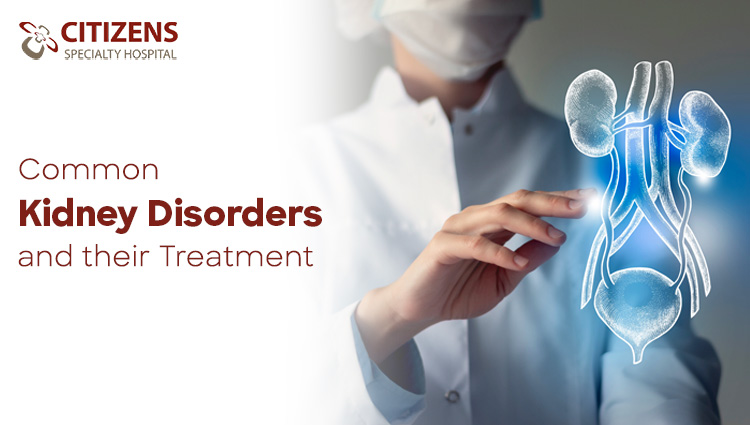
As the body's filtration system, the kidneys are crucial to maintaining our health. However, due to several factors such as genetics, lifestyle choices, or medical conditions, kidney disorders can cause several complications. Whether you're suffering from kidney stones or chronic renal disease, it is essential to understand these disorders and their treatment options for optimal care.
There are many kidney disorders that can affect children, some of which are very serious. Early diagnosis and treatment are essential to ensure the best possible outcome for your child.
Kidney Disorders
The most common kidney disorders in children include:
1) Congenital anomalies of the kidney and urinary tract: These are abnormalities that are present at birth and can involve the kidneys, ureters, bladder, or urethra. They can be caused by genetic defects, problems with fetal development, or other factors.
2) Glomerulonephritis: This is a group of diseases that damage the tiny filters (glomeruli) in the kidneys that remove waste products from the blood. Glomerulonephritis can be caused by infection, autoimmune disease, or other conditions.
3) Kidney stones: Kidney stones develop when there is too much of certain substances in the urine. These substances can form crystals that eventually become stones. Kidney stones are more common in adults, but they can occur in children as well.
4) Chronic renal failure: This is a progressive decline in kidney function over time. It can be caused by any condition that damages the kidneys or impairs their ability to function properly. Chronic renal failure eventually leads to complete kidney failure and requires dialysis or a kidney transplant for treatment.
Overview of Nephrology
There are many different types of kidney disorders, each with its own unique set of symptoms and treatment options. Nephrology is a branch of medicine that specializes in the diagnosis and treatment of kidney disorders.
Some common kidney disorders include chronic kidney disease (CKD), acute kidney injury (AKI), and polycystic kidney disease (PKD). CKD is a long-term condition that slowly progresses over time. AKI is a sudden, potentially reversible, decline in kidney function. PKD is an inherited disorder characterized by the growth of abnormal cysts in the kidneys.
Treatment for kidney disorders varies depending on the specific disorder. In general, however, treatment may involve medications, lifestyle changes, and/or dialysis. Kidney transplants are also an option for some patients.
Nephrology hospital in Hyderabad is an important healthcare provider that offers specialized care for patients with kidney-related diseases. With their modern facilities, advanced technology, and highly qualified healthcare professionals, these hospitals provide patients with the best possible care and support to improve their quality of life.
Conclusion
As we can see, there are a variety of kidney disorders that can affect people of all ages. It is important to be aware of these conditions and their treatments so that early detection and treatment are possible. With the right nephrology team, many of these common diseases can be managed successfully. Citizens Specialty Hospital has such a team and is the best Nephrology hospital in Hyderabad. Therefore, it is crucial to prioritize your health and seek the best available treatment options to stay healthy.